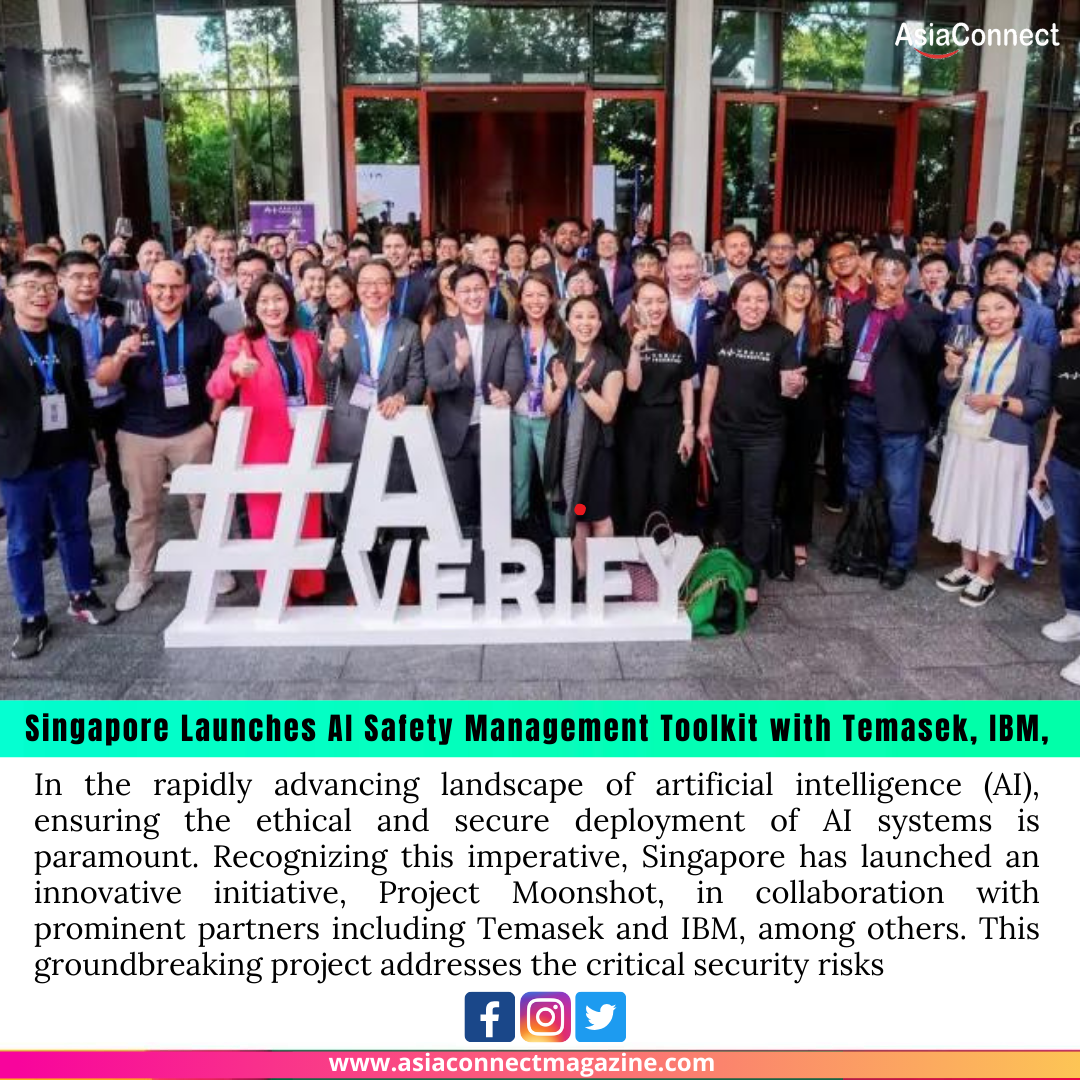In the rapidly advancing landscape of artificial intelligence (AI), ensuring the ethical and secure deployment of AI systems is paramount. Recognizing this imperative, Singapore has launched an innovative initiative, Project Moonshot, in collaboration with prominent partners including Temasek and IBM, among others. This groundbreaking project addresses the critical security risks associated with the utilization of Large Language Models (LLMs) by integrating red teaming, benchmarking, and baseline testing methodologies.
As AI technologies, particularly LLMs, become increasingly pervasive across various sectors, concerns regarding their potential misuse and unintended consequences have grown. Project Moonshot represents a proactive response to these challenges, aiming to establish robust frameworks for AI safety management. By bringing together expertise from both the public and private sectors, Singapore underscores its commitment to fostering responsible AI innovation.
Central to Project Moonshot’s approach is the concept of red teaming, a strategy borrowed from cybersecurity practices. Red teaming involves the simulation of adversarial attacks and scenarios to identify vulnerabilities within AI systems. By subjecting LLMs to rigorous testing under simulated threat conditions, Project Moonshot aims to uncover potential weaknesses and enhance the resilience of these systems against malicious exploitation.
Moreover, Project Moonshot emphasizes the importance of benchmarking to establish performance standards and evaluate the effectiveness of AI safety measures. Through systematic benchmarking exercises, researchers can compare the performance of different AI models and identify areas for improvement. This data-driven approach enables continuous refinement and optimization of AI safety protocols, ultimately enhancing the overall security posture of AI deployments.
In addition to red teaming and benchmarking, Project Moonshot prioritizes baseline testing as a fundamental component of AI safety management. Baseline testing involves establishing a set of minimum security requirements and conducting regular assessments to ensure compliance. By setting clear baseline standards for AI systems, Project Moonshot seeks to instill a culture of accountability and transparency in AI development and deployment practices.
Collaboration lies at the heart of Project Moonshot’s success, with partners from academia, industry, and government working together to address complex AI safety challenges. By leveraging diverse perspectives and expertise, Project Moonshot fosters innovation and knowledge exchange, driving continuous improvement in AI safety management practices.
Furthermore, Project Moonshot serves as a testament to Singapore’s commitment to positioning itself as a global leader in AI governance and innovation. Through strategic partnerships and forward-thinking initiatives like Project Moonshot, Singapore aims to establish itself as a trusted hub for responsible AI research and development.
Looking ahead, the lessons learned from Project Moonshot are poised to inform future efforts in AI safety management not only in Singapore but also around the world. By pioneering novel approaches and fostering collaboration, Project Moonshot represents a significant step towards realizing the full potential of AI while mitigating associated risks.
In conclusion, Project Moonshot embodies Singapore’s proactive stance towards addressing the security risks associated with AI, particularly LLMs. Through the integration of red teaming, benchmarking, and baseline testing methodologies, Project Moonshot lays the groundwork for effective AI safety management practices. By fostering collaboration and innovation, Project Moonshot paves the way for a future where AI technologies are deployed responsibly and ethically, contributing to societal progress and well-being.





